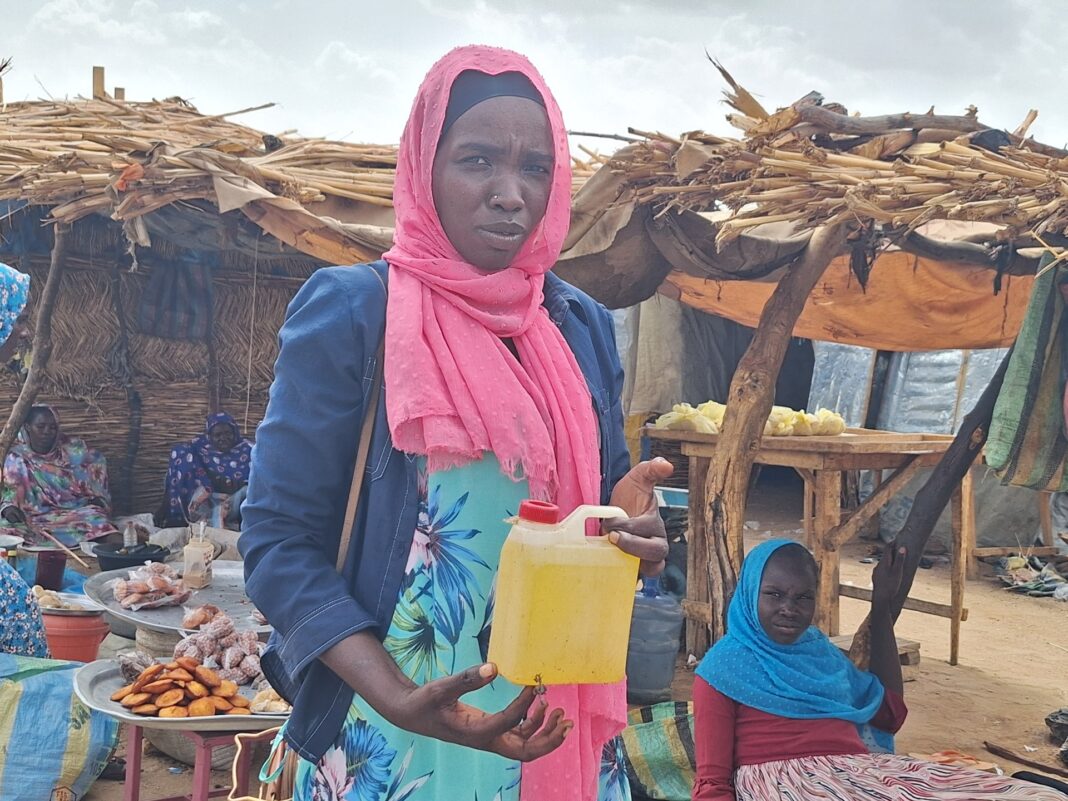Metche, Chad – A group of village elders huddle in the sparse shade of a tree to discuss the influx of Sudanese refugees that threatens to overwhelm them. They are worried.
This is Metche, Chad, about 30 kilometres (19 miles) from Sudan’s war-torn region of Darfur, where a refugee camp has sprung up and thousands of people have sought safety.
The camp sprawls near the village – makeshift shelters of straw, cloth, tree branches and tarps separated by narrow, crowded tracks where cattle and motorbikes jostle with people on foot.
About 600,000 people have fled violence and famine to seek refuge in Chad since the Sudanese civil war broke out in April 2023, but their presence has fanned tensions as local resentment builds.
Many were relocated to six refugee camps, including the one near Metche, in areas where a few thousand rural Chadian farmers and pastoralists live.
United Nations agencies built the refugee camp, two men from Metche tell Al Jazeera, but they put it on a large swath of farmland they need for growing food and accessing water.
After taking their farmland and making it difficult for them to support themselves, they add, these same agencies are not giving their community enough food rations to survive.
“We were farmers before the refugee crisis, but now the refugees are the ones that work our land,” Adam Abdallah Suliman, a local community leader, said.
The UN refugee agency’s representative in Chad, Jerome Merlin, said the camps were only set up after obtaining permission from community leaders and determining that there would be enough water and farmland for refugees and the local population.
“There are some tensions because … Chad received more than 600,000 people in one year. Can you imagine?” he said over the phone.
Fighting over resources
Suliman, a slim Chadian man wearing a white gallabia and imma (traditional kaftan and turban worn in the region), was starting to open up about tensions between his community and refugees in the nearby camp when rain started pelting down.
Journalists and aid workers run to their vehicles and drive off before the roads flood, while Chadian women get ready to head to the wadis to fetch water.
Before it poured, Suliman had told Al Jazeera that this hot, dusty region is prone to flash floods that fill the surrounding wadis, or gullies, to the brim during the rainy season.
But “the [refugees] also take water from the wadis when it rains,” he said. “There’s hardly any water for us.”
On the other hand, Sudanese refugees say they are often attacked by Chadians when they leave their refugee camp to find water or gather firewood for cooking fires in the camp, according to Salwa Malik, 27, who lives in the Metche refugee camp.

Malik, a thin woman wearing a pink headscarf and colourful thobe, is speaking to Al Jazeera in her straw hut in the camp.
She is drinking traditional Sudanese coffee – made with ample sugar and ginger – as she tells of the challenges of day-to-day life in exile.
“I personally know at least three cases of women who have been raped,” she says. “We’re now sending much older women out of the camp to get firewood, hoping they won’t be attacked.”
Malik adds that armed “strangers” often enter the camp and that local men with guns intimidate refugees and sometimes attack young Sudanese men.
“I know at least two people who have been murdered by intruders in the camp,” she says.
Lack of resources, lack of funding
The war has put an enormous strain on host communities already suffering some of the highest levels of food insecurity globally, according to the World Food Programme (WFP).
But food assistance for Sudanese refugees and host communities in Chad is chronically underfunded, with only 19 percent of WFP’s requested budget covered by donors.
“Now [elders] in the local community are coming back to ask us for food because they’re really in need, but the majority of the funds are dedicated to the refugees and not to the host community,” Vanessa Boi, WFP emergency coordinator for Chad, told Al Jazeera.

WFP’s deputy country director, Koffi Akakpo, explained that the organisation cut off food aid to host communities, rather than reduce rations to refugees and Chadians living near the camps, because donors “earmark” a lot of relief assistance exclusively for refugees.
“We cannot direct money [stipulated to refugees] for other priorities unless we get the OK from the governments [that give us the money],” Akakpo said. “What we need is … flexibility [from donors] in order to also prioritise local communities.”
Food assistance, he added, will resume to some host communities for June, July and August.
The only way to ease tensions between refugees and locals is to shift from an emergency response to a development response – building schools and hospitals, cultivating more farmland and improving access to drinking water, aid groups said.
Adre, where new arrivals from Darfur come before they are relocated to camps, is more hectic as it hosts 185,000 refugees, compared with a local population of about 40,000.
The governor of Adre, Mohamad Issa, said that tensions are boiling over in the area.
“The issue right now is that there is a lack of cattle and lack of farming [for everyone]. Trade has also reduced [for Chadians],” he told Al Jazeera.
“We are requesting all relief organisations to support us. But there has to be specific aid that goes strictly to Chadians in host communities because they could die from [hunger and thirst] as well.”







